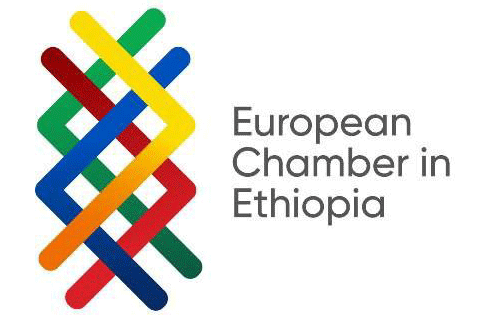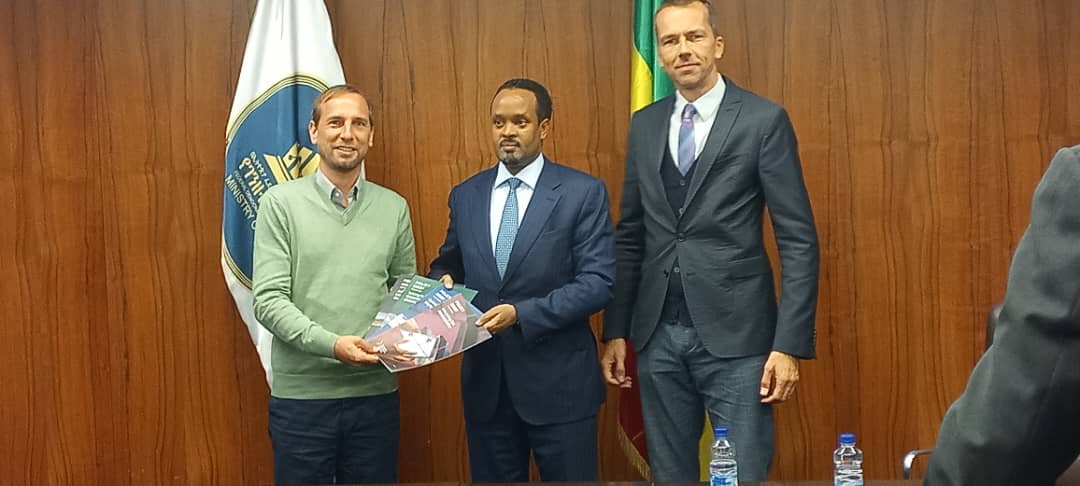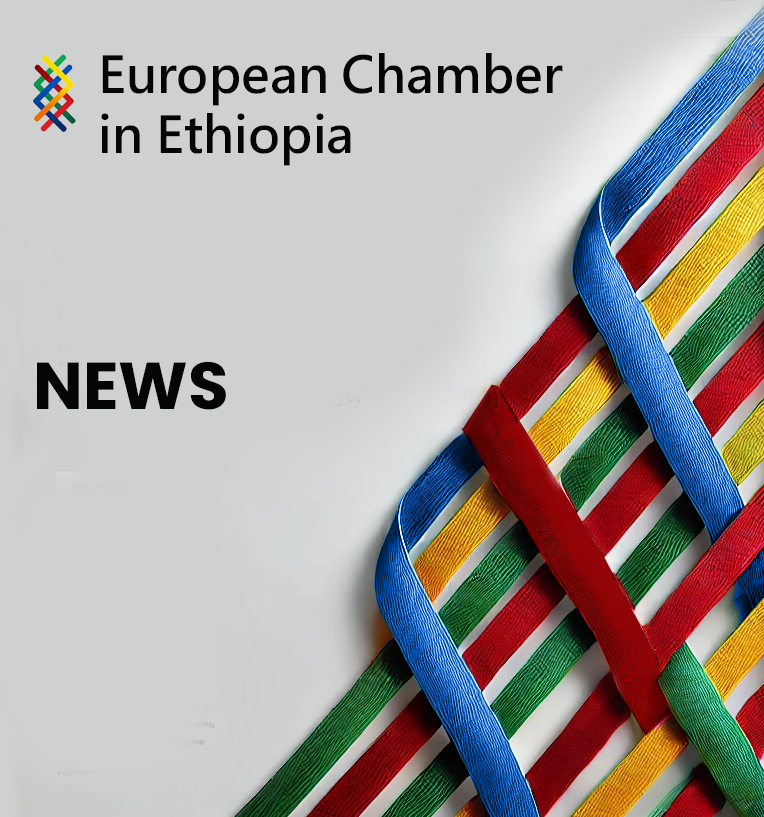Ethiopian Securities Exchange CEO Speaks of Building a Stock Exchange for Ethiopia's Future: Jobs, Investment, and Long-Term Growth
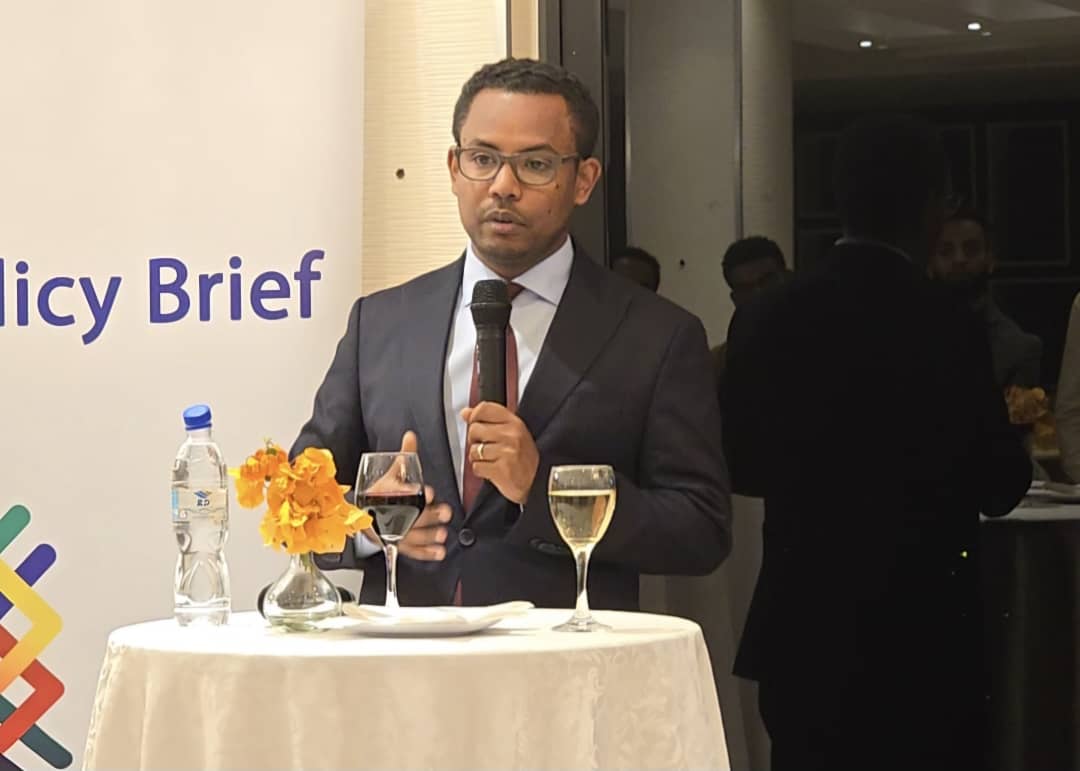
Ethiopian Securities Exchange CEO Speaks of Building a Stock Exchange for Ethiopia's Future: Jobs, Investment, and Long-Term Growth
The European Chamber in Ethiopia hosted its latest monthly CEO networking event on June 13, 2024, featuring Tilahun Esmael (PhD), CEO of the Ethiopian Securities Exchange. The CEO acknowledged the strain of providing sufficient government jobs for a population exceeding 120 million. He emphasized the urgent need to nurture the private sector, aiming for it to drive at least 70% of future job creation. This focus is fueled by projections of a staggering 20 trillion birr public sector funding gap over the next decade, with annual increases of 20-25% expected. The current system, reliant on tax revenue that covers less than half of government expenses, necessitates alternative financing solutions. Currently, some of the government’s funding comes from a patchwork of loans, grants, deficit spending, and even occasional borrowing from local sources.
Reflecting on Ethiopia’s reliance on foreign borrowing for development and the need to expand domestic financing options, Tilahun says, “If the capital market is created, the government could issue marketable treasury bills, attracting investment from a broader range of sources – commercial banks, individuals, businesses, and potentially even foreign investors. Both the government and private sector need significant long-term finance, and that’s exactly what capital markets do.” While advocating for exploring the local currency bond market – currently receiving investment only from banks and the nation’s two pension funds to which both the public and the private sector contribute – the CEO cautioned that results wouldn’t be instantaneous.
Beyond bank loans, long-term financing remains a hurdle for Ethiopia’s private sector. The CEO pointed out the personal risks associated with traditional financing methods. Securing loans for projects exceeding 10 years becomes a challenge, often requiring collateral like homes or entire companies, essentially putting families’ financial security at stake. “The question is how can some of the big projects that we want to have in this economy be financed through equity capital. It could be the next fertilizer company, the next agrochemical company and the next large agriculture plantation which cannot be financed the way we have been financing businesses. Much of the FDI that comes into Ethiopia is actually financed in this way through equity capital,” says Tilahun. He reiterated that the two core goals of the exchange in capital markets is financing for the private and public sector, while acknowledging markets are not a panacea in terms of access to finance for the private sector even in a developed economy.
The Ethiopian Securities Exchange anticipates a future equity market. The plan includes listing some state-owned enterprises (SOEs) on the exchange. Telecom Ethiopia is already publicly owned, and under the Ethiopian Investment Holdings (EIH), five additional SOEs have been identified as potential listings. These companies have undergone listing readiness assessments, paving the way for potential partial or full privatization in the future. “We have almost more than 16 banks, all the major banks as our shareholders, around 12 insurance companies and additional about 17 non -financial entities as shareholders of the exchange. We bring an added value by facilitating the interbank money market,” says Tilahun.
To cater to Small and Medium Enterprises (SMEs), the exchange plans to establish a growth market. Similar to the main market, this platform will have quality control measures. However, the listing requirements will be less stringent. Companies on the growth market might not have a long track record (less than 3 years) or audited financial reports, but they should demonstrate a clear path for future growth. This distinction between the main and growth markets allows promising SMEs to access capital even if they don’t meet the stricter criteria of the main market. This initiative, encompassing both equity and debt financing, represents a key goal for the exchange.
The CEO reflected that the development of capital markets is shifting globally with a shrinking number of listed companies alongside a rising market capitalization. He mentioned the New York Stock Exchange with a market cap that has been steadily climbing over the past three decades, despite a decrease in the number of listed companies. He said this trend seems to be mirrored across Africa. “The entire market capitalization in Africa is not more than 1.25 trillion US dollars. That’s most likely less than the Thailand exchange or any of probably the major Asian exchanges. The Johannesburg stock exchange takes 90 % of it while other countries divide the remaining 250 billion dollars. In these markets, we are seeing a limited number of listings but higher market valuations. Capital markets are trying to create depositors of value,” Tilahun says. A key objective for the investor side lies in fostering an ecosystem that encourages Ethiopians to save even small, incremental amounts. This would ultimately create a substantial pool of capital. To achieve this, the CEO highlights the need to significantly enhance the ability to contribute to pension funds and collect smaller investments. “Ethiopia saves about 30% of its GDP, which is a significant figure and probably one of the few things that are higher compared to other countries in the region. But I’m afraid that much saving has not translated into financial saving,” reflects Tilahun.
The success of a capital market hinges on attracting both high-quality companies and interested investors. The private sector needs to establish strong businesses with sound corporate governance and financial reporting. These companies must then be enticed to list on the exchange, choosing to raise capital through this public market over traditional methods such as bank loans, private equity, or self-financing. “When economies grow, our ability to save increases, but our ability to save it in something appropriate does not increase simultaneously. Capital markets offer a solution for that,” Tilahun says.
Summarizing the benefits of the capital market, the CEO mentioned that it would help the government raise finance through issuing treasury bills and bonds, creates a platform for companies to raise capital through equity markets, fosters a culture of saving and financial investment and enables individuals to invest in a wider range of financial instruments beyond the current trend of focusing on real estates.
latest News
EBO Conference Highlights Global Economic Concerns and Strategies

EBO Conference Highlights Global Economic Concerns and Strategies
The recent European Business Organizations (EBO) Conference held in Brussels from June 3 to 7, 2024 showcased a robust gathering of global business leaders focused on navigating complex economic challenges and opportunities. Hosted by Jason Collins, Chair of EBO Global, the event drew record attendance, underscoring its growing influence with 54 member organizations worldwide.
Key discussions revolved around pivotal themes including the rise of Africa as a trade priority, the implications of the EU’s Carbon Border Adjustment Mechanism (CBAM), and strategic responses to the evolving US-China trade dynamics.
With Africa witnessing the fastest membership growth, discussions highlighted its strategic importance due to rich natural resources and burgeoning population. Member nations emphasized the need for balanced partnerships that foster sustainable growth across the continent. EBO Ethiopia raised the foreseeable challenges in relation with the implementation of EU Deforestation Regulation in the coffee value chain that will impact more than 5 million small holder farmers across the country.
Central to deliberations was the EU’s commitment to the Green Economy, with stringent CBAM regulations aimed at ensuring global exporters meet EU environmental standards. Concerns were raised regarding the potential cost burdens for businesses, including SMEs, navigating supply chain complexities.
Amidst escalating US-China trade tensions, participants explored the EU’s approach to de-risking its exposure to China, emphasizing adherence to WTO rules and advocating for fair global trade practices. This approach aims to balance economic growth with environmental stewardship.
While the conference focused on economic strategies, including critical raw material partnerships and digital investments, it also addressed geopolitical uncertainties such as the Ukraine conflict and implications for EU policies.
Overall, the conference provided a platform for proactive dialogue and strategic planning among global business leaders, reinforcing EBO’s pivotal role in shaping international trade policies and fostering economic resilience.
For more information, visit EBO Worldwide Network.
latest News
Ethiopian Investment Commission Commissioner H.E. Hanna Arayaselassie addresses members of European Chamber
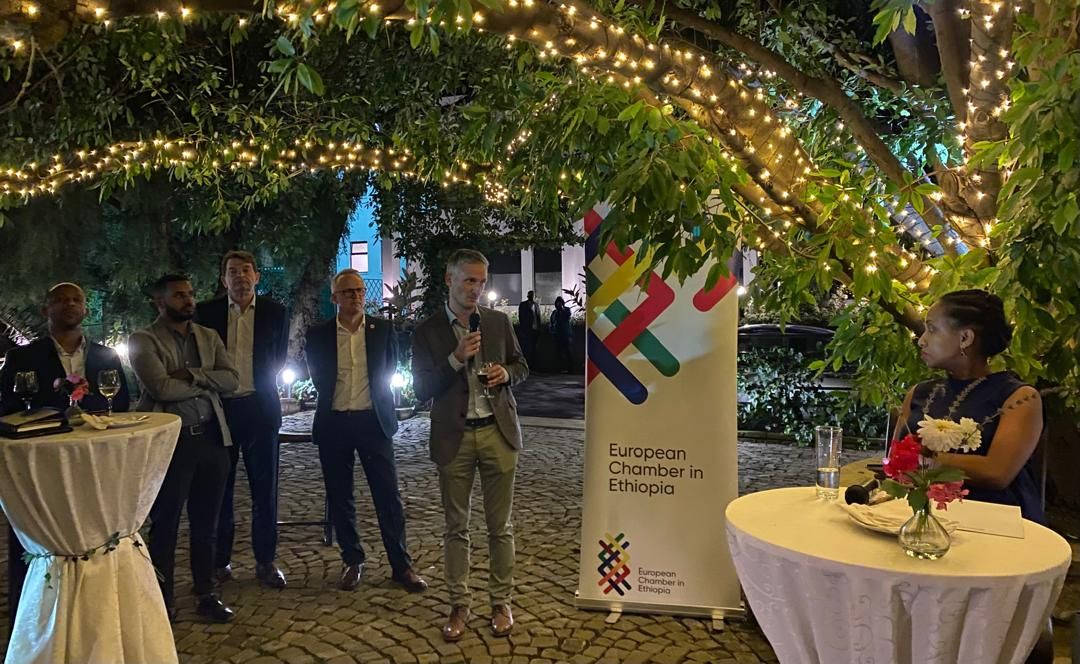
Ethiopian Investment Commission Commissioner H.E. Hanna Arayaselassie addresses members of European Chamber
After nearly half a century, Ethiopia announced that it is inviting foreign investors back into its trading sector. This landmark decision, announced in April 2024, signals a move away from the country’s previous strategy of shielding domestic businesses. The upcoming reforms were discussed during the European Chamber’s monthly CEO networking event that took place on May 16, 2024. Members of the European Chamber had the opportunity to discuss the directive and get some more insights from H.E. Hanna Arayaselassie, member of the Ethiopian Investment Board and Commissioner of the Ethiopian Investment Commission (EIC), who was the guest speaker at the event.
The Commissioner explained that the Ethiopian Investment Board meticulously planned this reform. Their comprehensive study examined the experiences of other nations and evaluated the rationale behind Ethiopia’s long-standing protectionist trade policies. For decades, the Ethiopian government prioritized nurturing domestic wealth creation. The aim was to allow sheltered domestic companies to mature and eventually integrate with the global market. However, this limited competition disincentivized domestic businesses from venturing into higher-value activities like manufacturing. The government acknowledged the shortcomings of the previous approach. The closed system fostered significant challenges, including informality and illegal practices within the wholesale, retail, import, and export sectors. The new policy aims to address these issues by introducing foreign investment.
The Ethiopian government anticipates a series of positive outcomes from this reform. Increased competition in the trade sector is expected to benefit various stakeholders. Foreign suppliers will gain access to improved networks for distributing their products. Consumers are likely to experience lower prices due to increased competition. Additionally, by formalizing previously informal businesses, the government anticipates a rise in tax revenue.
This move towards a more market-driven economy extends beyond the trade sector. The government has signaled its intention to further liberalize the logistics sector, underscoring a broader commitment to attracting foreign investment and fostering private sector participation. This reform has the potential to unlock significant economic growth for Ethiopia in the years to come. Previously restricted commodities like coffee, pulses, and oilseeds are now open for export by foreign investors. However, safeguards are in place. Companies with no prior Ethiopian sourcing experience must secure a minimum export transaction within their first licensing year, ensuring established business practices and a commitment to Ethiopian produce.
A significant shift is the opening of the import sector to foreign investors, excluding fertilizers. To participate, companies must either be manufacturers or act as authorized agents. Alternatively, a minimum import threshold has been established for the first year, catering to those without established Ethiopian partnerships.
The wholesale sector is now largely open, with investors only needing a standard contract. However, demonstrating a robust logistics infrastructure within Ethiopia is an additional requirement, ensuring efficient movement of goods. Foreign entry into the retail sector is permitted, but with limitations to protect smaller domestic retailers. These limitations likely involve minimum store size requirements, ensuring a level playing field.
The Ethiopian Investment Commission, responsible for issuing licenses, will prioritize applicants with proven experience and the capability to achieve the directive’s goals. Investors will also be expected to enter into detailed agreements, ensuring compliance with these goals. This directive represents a significant shift for Ethiopia, aiming to attract foreign investment and stimulate economic growth. By opening key sectors while implementing safeguards, the government seeks a balance between fostering development and protecting domestic interests.
The government has outlined a measured approach to liberalizing the trading sector, prioritizing controlled experimentation over immediate, sweeping reforms. This phased introduction reflects a desire to both unlock economic potential and ensure a smooth transition for all stakeholders.
latest News
The European Chamber in Ethiopia launches a Policy Brief on Enhancing Tax Administration in Ethiopia
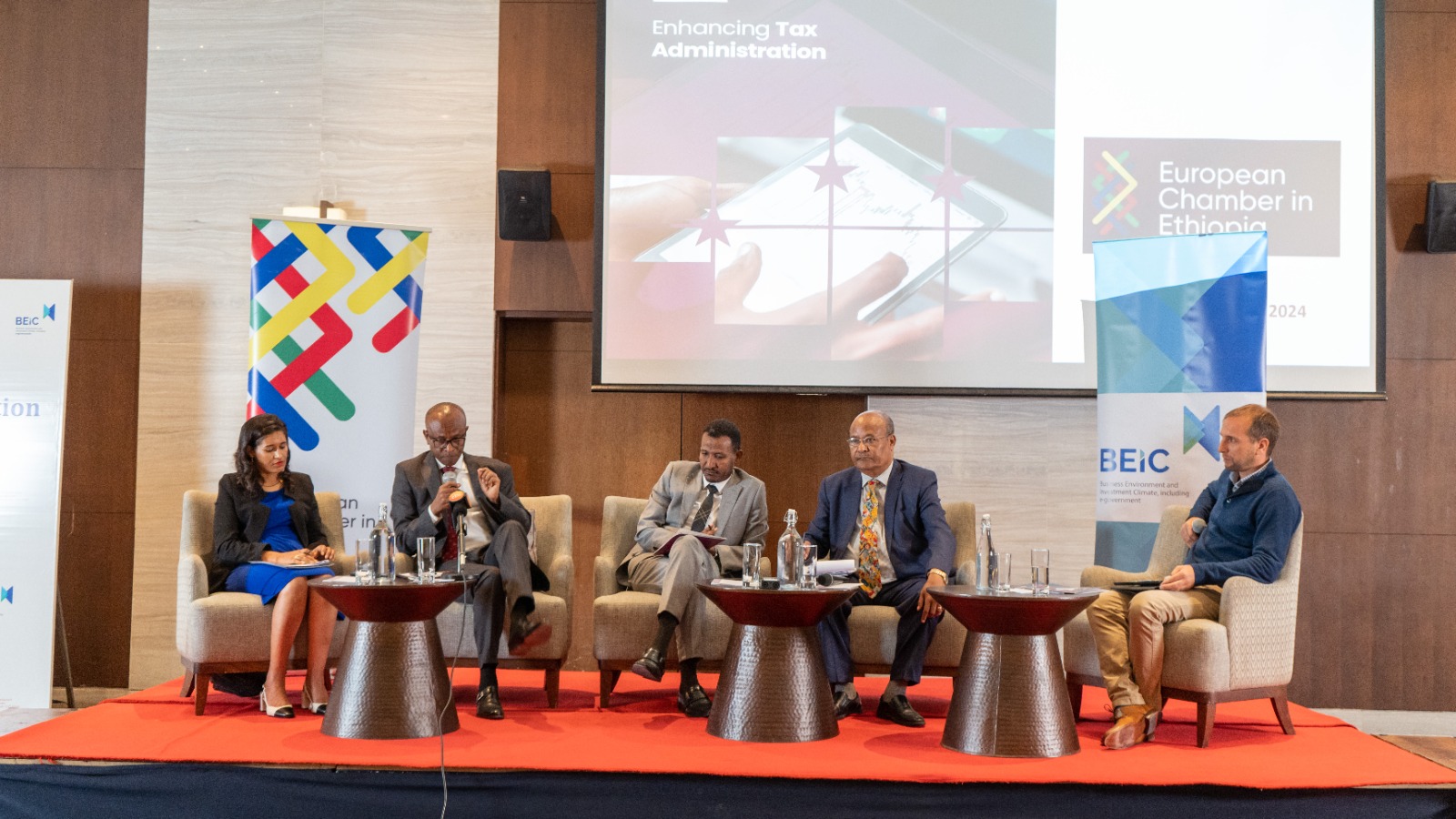
The European Chamber in Ethiopia launches a Policy Brief on Enhancing Tax Administration in Ethiopia
[Addis Ababa, April 25, 2024] – The European Chamber in Ethiopia announces the launch of a policy brief focusing on enhancing tax administration in Ethiopia. The Policy Brief encapsulates a thorough analysis of the hurdles confronted by the private sector in the country’s tax administration process. It proposes recommendations on addressing tax-related issues, with a specific focus on improving predictability, correcting misinterpretation of laws, and enhancing auditing procedures for corporations. The Policy Brief was produced by the European Chamber in Ethiopia in collaboration with the EU funded Technical Assistance for Business Environment and Investment Climate, including e-government (BEIC) project.
Some of the key challenges incorporated in the document highlight that inconsistencies in tax directives from various government agencies such as the Ministry of Finance, Ministry of Revenues and the Ethiopian Investment Commission create confusion, while repetitive audits and inconsistent assessment techniques lead to unpredictable outcomes in what tax cases are accepted or rejected. The unrestricted authority of tax auditors, coupled with their lack of expertise in specific industries and international tax treaties, further complicates the process for businesses. Accessing updated tax information on the tax office website is unreliable, and the quality oversight of tax audits remains unclear. Compounding the financial burden, companies must also grapple with the requirement of a 50% deposit of their tax claim to appeal decisions with the Ethiopian Federal Appeal Commission. This hefty sum adds to the frustration caused by tax audits that treat all businesses identically, regardless of their past tax compliance record.
In its recommendations to the government, the Policy Brief pushes for a reformed tax environment in Ethiopia. To achieve this, close collaboration between the Ministry of Finance and relevant agencies is paramount, ensuring clear and consistent tax directives. Standardized audit programs, complete with industry-specific manuals, are crucial alongside comprehensive training to auditors. Taxpayer involvement in ensuring these standards accurately reflect industry realities and ranking taxpayers based on their compliance and fast-tracking services, would further strengthen the system.
The Policy Brief also calls for a fairer and more transparent tax administration process. This can be achieved by reducing the burdensome appeal deposit, shifting the focus of audits towards compliance rather than solely revenue collection, setting realistic targets for auditors, and implementing clear mechanisms to hold them accountable. Upgrading the electronic filing and payment system, establishing clear guidelines for expense acceptance, and learning from successful tax administration models like those in South Africa, Morocco, and Kenya, or through tools like Tax Administration Diagnostic Assessment Tool (TADAT), have also been put forward as valuable tools in achieving these goals.
The insights and suggestions stem from an extensive research endeavour encompassing an online survey, one-to-one semi structured interviews, and focus group discussions with key stakeholders hailing from ministries, business associations, investors, and academia. The objective is to identify challenges faced by the private sector, in relation to tax administration, thereby creating a conducive environment for private sector growth and attracting foreign investment to Ethiopia.
The policy brief was launched on April 25, 2024 at Hyatt Regency with the attendance of the Ethiopian Investment Commission Commissioner H.E. Ms. Hanna Areyaselassie, EU Ambassador to Ethiopia H.E. Roland Kobia, Board Chairman of the European Chamber in Ethiopia Ben Depraetere, and other high ranking government officials.
latest News
EuroCham’s Monthly CEO Networking Event Discusses Shipping and Logistics Along the Red Sea Route
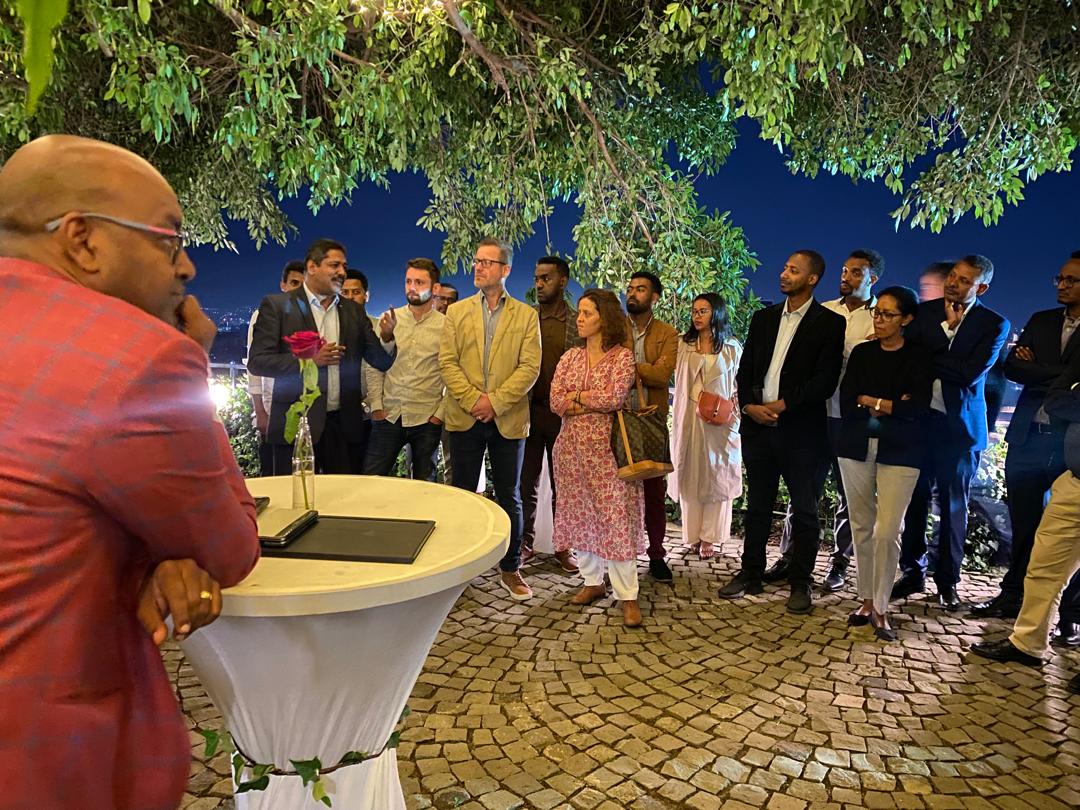
EuroCham’s Monthly CEO Networking Event Discusses Shipping and Logistics Along the Red Sea Route
The European Chamber in Ethiopia hosted its monthly CEO networking event on April 18, 2024. Guest speaker of the event, Ato Dawit Wubshet, Managing Director of Wubget Holdings, and Board Chair of the Ethiopian Freight Forwarders and Shipping Agents Association (EFFSAA), shared his insight on navigating the opportunities and challenges related to shipping and logistics along the Red Sea route.
Ato Dawit’s briefing highlighted a critical issue: container shortages at key ports, particularly the congestion in Djibouti. This bottleneck, further complicated by Djibouti’s transhipment of cargo to Yemen, is causing major disruptions for investors across industries. Ethiopian coffee exports, especially vulnerable due to their commodities’ perishable nature and susceptibility to price fluctuations, are particularly affected. While alternative ports like Berbera offer potential, their utilization remains hindered by ongoing conflicts, the absence of a finalized bilateral agreement, security concerns, and incomplete infrastructure development. Despite having sufficient warehouse capacity and the potential to handle around 500,000 containers, Berbera’s full functionality awaits a resolution to these political and infrastructural roadblocks.
Mombasa, another potential alternative port, faces significant drawbacks. Its immense distance of approximately 1,300 kilometers creates logistical hurdles, making it impractical to reroute shipments across such a vast stretch. Furthermore, the road infrastructure leading to Kenya or the Moyale border presents additional challenges, with limited capacity to handle the maximum tonnage of Ethiopian trucks (around 40 tons) compared to the port’s maximum capacity of 28 tons. This disparity necessitates offloading and reloading cargo at Moyale, leading to a significant increase in expenses, manpower, energy, and overall transit time. Compared to the port of Djibouti, utilizing Mombasa would result in a substantial rise in land logistics costs and inefficiencies.
While the Lamu Port-South Sudan-Ethiopia-Transport (LAPSSET) Corridor remains under development, both Ethiopia and South Sudan are actively pushing for its completion. This initiative marks a significant step forward with the arrival of a trial shipment, with the first vessel expected to dock at the port on May 5, 2024.
Ato Dawit mentioned that Ethiopia’s new transport directive for the next decade seeks to revolutionize the logistics landscape by offering two distinct strategies. In terms of foreign investment, the directive allows foreign companies to partner with domestic entities on a 51-49 basis. This collaboration aims to inject fresh capital, technology, expertise, and manpower into the logistics sector, ultimately enhancing its efficiency and capabilities. Additionally, the government is granting multimodal licenses to three major companies. These companies will work alongside the Ethiopian Shipping Line, leveraging air, sea, and road transportation to develop and facilitate diverse routes, maximizing Ethiopia’s logistical reach. The Managing Director acknowledged Ethiopia’s strategic geographic location, ideally situated to serve various businesses throughout the region. By effectively leveraging its logistics sector, embracing cutting-edge technologies, and undergoing digital transformation, the country can unlock significant economic benefits. Conversations that followed Ato Dawit’s briefing focused on the practical experiences of the investment community with various ports in the region.
latest News
A Call for Comprehensive Solutions to Curb the Impact of EU Deforestation Regulation on Ethiopian Coffee Farmers

A Call for Comprehensive Solutions to Curb the Impact of EU Deforestation Regulation on Ethiopian
Coffee Farmers
Ethiopia’s rich coffee industry, predominantly fueled by the toil of over 5.8 million smallholder farmers, now faces a looming threat as the European Union’s Deforestation Regulation (EUDR) takes effect. This regulation, aimed at combating global deforestation, lays down stringent diligence requirements for commodities like coffee.
Introduced on June 29, 2023, the EUDR compels companies dealing in specified commodities to ensure their products are free from the taint of post-2020 deforestation or breaches of environmental laws. Non- compliant goods will face exclusion from the EU market starting December 30, 2024. Such a scenario poses a significant risk to Ethiopia’s coffee exports, which contribute a substantial 35% to its total export revenue.
In response, collaborative endeavors involving the European Chamber in Ethiopia (EuroCham), the EU Green Deal project team, and local stakeholders have been initiated to grapple with the implications of the EUDR. However, lingering concerns persist, particularly regarding the practicality of compliance for smallholder farmers.
A recent round table discussion hosted by EuroCham and European Coffee Buyers shed light on the mounting apprehensions among international buyers. The harsh penalties for non-compliance, which could amount to at least 4% of EU turnover, have served as a deterrent for importers contemplating engagement with Ethiopian exporters.
The hurdles in implementing the EUDR are multifaceted, with one of the significant challenges being the complexity of tracing coffee origins across Ethiopia’s extensive smallholder farming landscape. Though the Ethiopian government has put forth a compliance action plan, encompassing geo-location data collection, the feasibility of such measures remains uncertain.
Furthermore, the EUDR fails to provide adequate incentives for smallholder farmers, potentially driving them towards deforestation in pursuit of more lucrative crops, thus negating the regulation’s environmental objectives.
As discussions continue, the imminent threat to the livelihoods of Ethiopian coffee farmers underscores the urgent need for comprehensive solutions. Striking a balance between environmental conservation and the socioeconomic realities of coffee-producing communities is imperative in navigating these challenging times.
In light of this, calls for strategic foresightedness from the Ethiopian Coffee and Tea Authority in addressing the compliance challenge for the over 5.9 million smallholder farmers are becoming increasingly urgent. The time to act is now to safeguard the future of Ethiopia’s renowned coffee industry.
Bahru Temesgen/EuroCham
